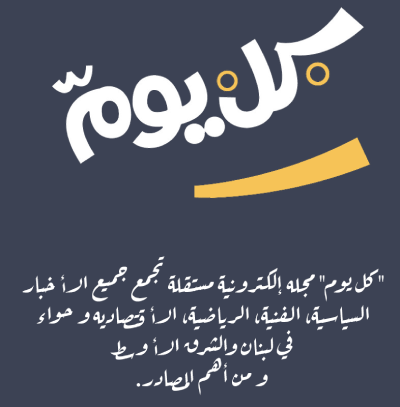اخبار لبنان
موقع كل يوم -التيار
نشر بتاريخ: ٢ أيلول ٢٠٢٥
Head of the Free Patriotic Movement (FPM), MP Gebran Bassil, toured the Jezzine district, accompanied by MP Amal Abou Zeid, former MP Salim Khoury, former Minister Hector Hajjar, Jezzine Mayor David El-Helou, former Mayor Khalil Harfouch, and FPM Vice President for Administrative Affairs Ghassan Khoury.
⸻
Our Lady Miraculous Church in Bisri
Bassil began his tour at Our Lady Miraculous Church in Bisri, where parish priest Father Salim Nassar led a prayer and recounted the church’s history. He noted that the miraculous icon it houses is one of only two in Lebanon, and that the church was built in a unique style as a special offering to the Virgin Mary. Father Nassar also pointed out the 250-year-old oak tree at the site, the surrounding orchards, and the church’s inclusion on Lebanon’s tourist map. The icons inside date back to 958, and this was the second parish in Lebanon dedicated to Our Lady, after Our Lady of Ilige.
The Bisri Plain and the Water Crisis
Bassil’s second stop was the Bisri Plain, where he addressed local youth about the water crisis.He stressed that the people of Jezzine remain deeply rooted despite all challenges. “When we were in government,” he explained, “we studied the Bisri Dam project and advanced it. This site was ideal for what would have been Lebanon’s second-largest dam after Qaraoun. It was also the most cost-effective: $120 million for construction and $150 million for land acquisition.”
He emphasized that the dam would have supplied water to Jezzine, the Chouf, East Saida, Iqlim, the Baabda coast, Aley, and even Beirut—benefiting nearly two million Lebanese at a total cost of around $1 billion.
“So far,” he continued, “$420 million has already been spent on Bisri and the Awali–Beirut Water Conveyor Project. Then came October 17, 2019, which disrupted many projects, including Bisri. Work was halted, depriving this entire region of water—all for political spite. Those who claimed to defend the environment—do they not see the garbage scattered across this plain? They ignored the fact that a dam holding 120 million cubic meters of water would have supported tourism, irrigation, and drinking water. Instead, they boasted about stopping the project just to score points against the FPM. And today, these same people complain about water scarcity.”
Bassil described the blocking of the Bisri Dam as “a deliberate waste orchestrated by a political mafia determined to obstruct development.” He added: “Every dam project we advanced was met with a new excuse—always a reason to say no. And yet, those who took over the ministry in search of corruption files found nothing. Around the world, there are two main approaches to dam-building, and we chose the more cost-effective one. Today, however, those who stopped Bisri must answer to the Lebanese people who are thirsty. They have no answer—only lies. The younger generation must learn to recognize who speaks truth and who deceives.”
Concluding this point, Bassil vowed: “We will continue on the same path. Politics has been exposed as lies—but we turned it into action.”
Karkha and the Legacy of St. John
Bassil’s third stop was Karkha, where he met with the municipality’s vice president and mayor, Jean Nakhle. Reflecting on its history, he remarked: “The beheading of John the Baptist was nothing but an act of evil.”
He then visited the shrine of St. John, where Father Walid El-Deek shared its history. The shrine, built beside a cave under an ancient oak tree, is believed to have been visited by John the Baptist himself. The area is home to seven churches dedicated to St. John, and every year on his feast day, water flows from a rock beneath the cave—an enduring sign of its sanctity.
Decentralization and Local Governance
Bassil’s fourth stop was Jezzine’s municipal headquarters, where he met with mayors and municipal council members, alongside Mayor David El-Helou, to discuss the urgent need to implement administrative decentralization.
He later visited the home of Maroun Nader, meeting with Bkassine Mayor Youssef Nasr, Mrs. Greta Nader Al-Ashkar, and other community figures. A subsequent gathering was held at the home of former union president Khalil Harfouch, joined by former MPs Amal Abou Zeid and Ibrahim Azar.
The day concluded at the Jezzine FPM annual dinner, where Bassil delivered a keynote speech. He described Jezzine as “the bastion of resilience and of the FPM— the bride of the South and its shining face.”
“We never tire of coming to Jezzine,” he said. “Each visit, we rediscover the love we share with its people. Last time, we celebrated the victory achieved with MP Ibrahim Azar, whom we welcome again today. With every visit, we raise the FPM flag and bring a new idea with it.”
He noted, however, that this victory remained incomplete: “The results of the Jezzine Union of Municipalities election were tampered with, and we hope the ongoing legal challenge will restore David El-Helou to the presidency of the union.”
Bassil praised Jezzine’s endurance under shelling and occupation, describing it as a reflection of the FPM’s resilience: “Jezzine is deeply rooted in its land and principles. Wherever its people go—whether to Beirut or abroad—they always return, repeating: ‘God be with you, steadfast home in the South.’”
Shared Principles: The Army and the State
Bassil highlighted the parallels between Jezzine and the FPM: “Both were betrayed, besieged, attacked, and targeted. But in the end, the woodcutter grew weary, the storms passed, the sun rose—and both Jezzine and the FPM remained steadfast and rooted.”
“We and Jezzine have faith in the army and the state,” he continued. “Throughout our journey, we have believed in the military institution, in legitimacy, and in the state. Today, once again, we place our trust in the army. It must have the final say on carrying arms and defending the nation, and we will stand by it as long as it safeguards our security.”
He acknowledged the army’s lack of resources, which he said was intentional to ensure it would not pose a threat to Israel: “It is unjust to hold the army accountable without giving it the means to succeed. We renew our trust in it, pledging support for any decision it makes. Political leaders, however, must bear responsibility for protecting their people, especially in the South, and for defending Lebanon’s sovereignty.”
Rejection of Militias and Division
Bassil stressed: “Just as Jezzine never accepted living under militias, the FPM also refused to coexist with militias during the war, even when they were imposed on us. That is why we rallied behind General Michel Aoun, who embodied legitimacy, the state, and the army—and why we rejected militias alongside him. They cannot lecture us today on disarmament. We know how they treated the army when it demanded their weapons.”
“We and Jezzine share the same rejection of division. Jezzine’s role is to safeguard the national line; its vocation is to connect, not divide. Each community has its identity, but Jezzine’s calling is unity. On this occasion, we also remember Imam Moussa al-Sadr on the anniversary of his disappearance.”
On the Bisri Dam Once More
Turning again to the water crisis, Bassil declared: “Beirut has no water because the Bisri and Jannah dams were blocked, and other projects were halted. When we were at the ministry, we laid out plans that would have benefited Jezzine. When we secure water and electricity, we do so for all Lebanese. Those who deprived Jezzine of one of Lebanon’s most strategic water projects must be held accountable at the ballot box. So tell me—who is still thirsty now? There is no water in Beirut because of deliberate obstruction. Meanwhile, sewage flows through Bisri, and they boast about stopping projects! Hatred breeds only more hatred; we build, they destroy. Those who flaunt the petition that stopped Bisri must pay the price during elections.”
Jezzine: A Sanctuary of Unity
“For us,” Bassil concluded, “Jezzine is a sanctuary of unity and pride. For them, it has been turned into a stage for hatred, resentment, incitement, sectarian strife, and even the shadows of civil war. Their words seek to isolate and divide this beloved town. Our duty—together with our people and MP Ibrahim Azar—is to deepen Jezzine’s roots as a unifying bride that embraces everyone.”
He vowed that, just as the FPM had begun reviving Library Street the year before, it would now continue restoring its stairs, river, homes, and streets, ensuring that Jezzine once again shines as “a true gem and a welcoming destination that celebrates all who come.”



































































































